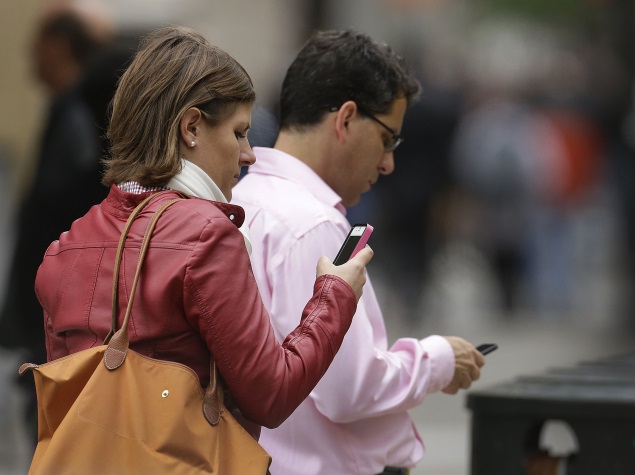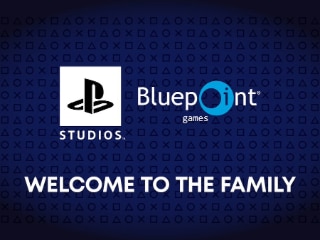- Home
- Internet
- Internet News
- SMS and Chat Have Killed Letter Writing, Claims Email's Inventor
SMS and Chat Have Killed Letter Writing, Claims Email's Inventor

"Email has explosively supported the growth of letter writing globally. Today, unlike some decades ago, where penning letters was limited to a few who could afford education, billions are now writing letters, in electronic form, as never before - albeit, we can argue about the quality of writing - but regardless, more people, than ever before, are participating in the written word," the 50-year-old MIT systems scientist, technologist, entrepreneur and educator told PTI.
In 1978, Ayyadurai invented the world's first email system at the age of 14 and was awarded the first US copyright for "email".
He feels people tend to confuse email with the simple exchange of short text messages such as in texting, SMS, chat or Twitter, saying these have "destroyed" letter writing.
"Email is not the simple exchange of text messages. Email is the electronic version of the interoffice mail system used for formal letter or memo communication," he says.
"Clearly texting, SMS and chat are very different than writing a letter or email. In fact, I believe what is going on is that people are realising that you use short messaging, like texting, SMS, chat, Twitter, etc. for quick informal messages, and you use email for more intimate and formal letter writing.
"In this sense, mail is the preferred medium for 'letter writing', and if anything, texting and chat, are killing 'letter writing'. Email did precisely what I predicted, back in 1978, it took over the postal mail process and system of writing letters."
Mumbai-born Ayyadurai has just come out with a book "The Email Revolution: Unleashing the Power to Connect", published by Allworth Press, in which he demonstrates how organisations can realise the infinite potential of email to strengthen their brands and reach their audiences in incredibly creative ways.
According to the author, email was designed for formal business communication, and as long as we participate in business, email will be here. When he created the first email, he saw its real value.
"The system as a service which could automate all paper-based activities of managing mail in the office environment, by providing features of inbox, outbox, folders, address book, attachments, sorting, archiving, etc. to emulate electronically the interoffice mail system - the email we all use today" says Ayyadurai he realised that email, if adopted widely, beyond its value economically and productivity-wise, would also have immense social implications.
"This is why I also had stated then that email would change our 'patterns of communication, attitudes, and styles'.
Today, email has become a legal medium, for example, and in business communications, especially, people should be more cognisant of what they put in email communications, for it is far different than informal communications such as texting, chat or SMS," he says.
Ayyadurai, however, regrets that the postal service of the US, in 1997 did not heed his advice and embrace email, to become a provider of an email service such as Gmail or Hotmail.
"Such a decision would have positioned them for the future as well as other postal services worldwide, since at that time, most of the world's postal services, looked to the US Postal Service for new innovations," he says.
Ayyadurai, who managed email for the Clinton administration and created email-sorting software which was used by companies like Nike, AT&T and Toyota, gets upset with "so-called experts" who, since the 1990s have been saying that "email is dead".
"When chat came in the early 1990s they said 'Email is Dead'; when SMS came, they said 'Email is Dead'; and when Facebook came, Zuckerberg declared 'Email is Dead'. They all confused short messaging and community messaging with formal messaging. Email is not texting. Email is not a Facebook post," he asserts.
Ayyadurai stresses that email is here to stay.
"I am confident because I know what email is, and what it is not, having invented it. And, more importantly, as a media researcher, and as a systems biologist, I believe that we as humans are hardwired to seek and engage in three different types of messaging modes: Short Messaging, Community Messaging, [and] Formal Messaging," he says.
Ayyadurai believes another smart kid can definitely create another more convenient mode of communication.
"I think there are a bunch of kids out there, given, the right ecosystem, they will create things, we've never dreamed before or thought were 'impossible' - think about a device for telepathic communication - for example - far better than typing away all day," he hopes.
Get your daily dose of tech news, reviews, and insights, in under 80 characters on Gadgets 360 Turbo. Connect with fellow tech lovers on our Forum. Follow us on X, Facebook, WhatsApp, Threads and Google News for instant updates. Catch all the action on our YouTube channel.
- Samsung Galaxy Unpacked 2026
- iPhone 17 Pro Max
- ChatGPT
- iOS 26
- Laptop Under 50000
- Smartwatch Under 10000
- Apple Vision Pro
- Oneplus 12
- OnePlus Nord CE 3 Lite 5G
- iPhone 13
- Xiaomi 14 Pro
- Oppo Find N3
- Tecno Spark Go (2023)
- Realme V30
- Best Phones Under 25000
- Samsung Galaxy S24 Series
- Cryptocurrency
- iQoo 12
- Samsung Galaxy S24 Ultra
- Giottus
- Samsung Galaxy Z Flip 5
- Apple 'Scary Fast'
- Housefull 5
- GoPro Hero 12 Black Review
- Invincible Season 2
- JioGlass
- HD Ready TV
- Latest Mobile Phones
- Compare Phones
- Realme P4 Lite
- Vivo V70
- Vivo V70 Elite
- Google Pixel 10a
- Tecno Camon 50
- Tecno Camon 50 Pro
- Lava Bold N2
- Vivo V60 Lite 4G
- Asus Vivobook 16 (M1605NAQ)
- Asus Vivobook 15 (2026)
- Infinix Xpad 30E
- Brave Ark 2-in-1
- Amazfit T-Rex Ultra 2
- boAt Chrome Iris
- Xiaomi QLED TV X Pro 75
- Haier H5E Series
- Asus ROG Ally
- Nintendo Switch Lite
- Haier 1.6 Ton 5 Star Inverter Split AC (HSU19G-MZAID5BN-INV)
- Haier 1.6 Ton 5 Star Inverter Split AC (HSU19G-MZAIM5BN-INV)


![[Partner Content] OPPO Reno15 Series: AI Portrait Camera, Popout and First Compact Reno](https://www.gadgets360.com/static/mobile/images/spacer.png)









